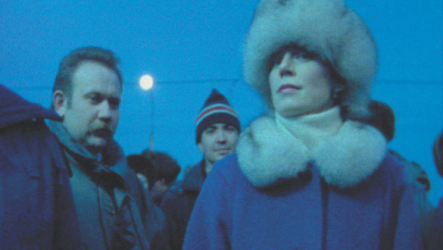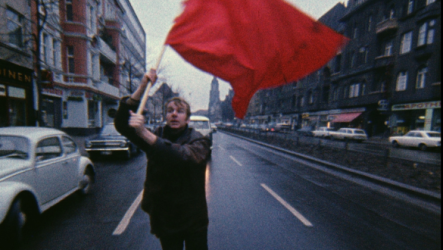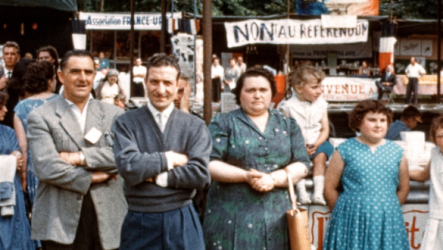The selection of films for this carte blanche arose from a question that concerns me both as a viewer and as a filmmaker: what is political cinema? We often evaluate the “political” based on a film’s subject matter or the degree of its activist intent. However, what matters in a work is that its form is worthy of the challenges and questions it raises. The two French-speaking filmmakers, Chantal Akerman and the younger Jean-Gabriel Périot, who are brought together by this program, undoubtedly have one thing in common: a deep concern for both the forms and the content that preoccupy them.
Chantal Akerman’s cinema is now considered “classic”. However, the radical nature of her aesthetic choices reveals the most profoundly political nature of her thinking and places her, even today, at the forefront of political cinema. Beyond any feminist, queer, or other interpretation of her work, what is most important is the way in which she films the depth of existences, whether collective in From the East and From the Other Side, or individual ‒and familial‒ in her latest film, No Home Movie. The honorary presence at the festival of Claire Atherton, Ackerman’s editor and companion, will shed light on aspects of her work.
Jean-Gabriel Périot moves from one film to the next in a dialectical manner, contrasting two aesthetic choices: one is explicitly historical and politicized, based on the montage of archival material (as in the films A German Youth and Returning to Reims (Fragments); the other approaches political bodies in the most honest way: either through their emotions (such as when they listen to the collective song of the prisoners in the film Our Days, Absolutely, Have to Be Enlightened), or by showing them in their inner reality, as in Intimate Diary, where the director’s own body is elevated to political theater. His first visit to Greece will give us the opportunity to come into contact with his multifaceted work.
MARIA KOURKOUTA

Our Days, Absolutely, Have to Be Enlightened
Read more ...









